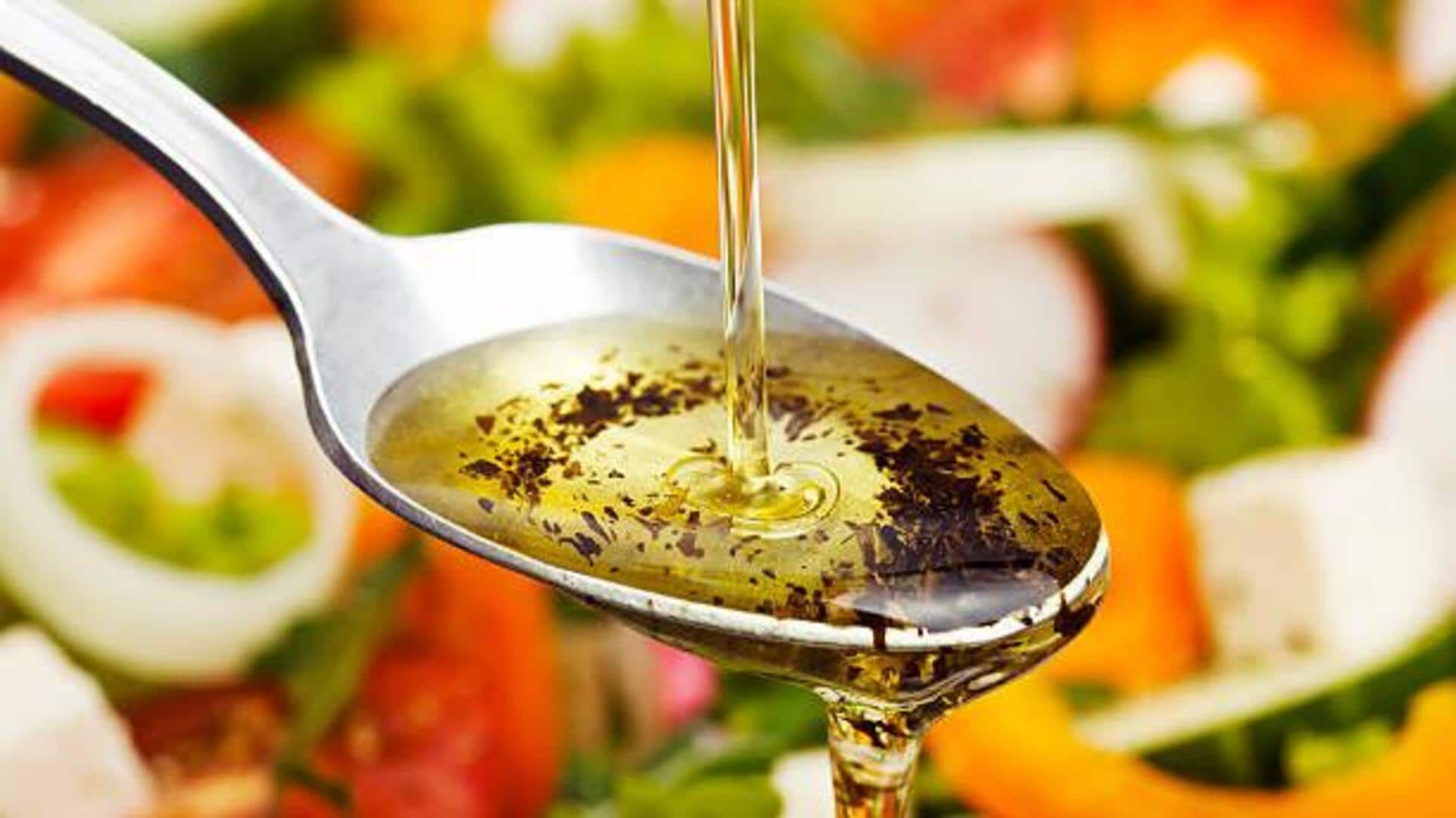
Salad dressings and health: Myth v/s facts
What's the story
Salad dressings are commonly perceived as healthy, but misconceptions about them can affect nutrition. Most people assume that all salad dressings are low in calories and good for health, which is not true. Knowing about these myths can help you make better choices for your diet and enhance your nutrition. Here are some popular myths about salad dressings and how to make healthier choices.
#1
Myth: All dressings are low-calorie
A common misconception is that all salad dressings are low in calories. In reality, many store bought options contain high levels of fats and sugars, significantly increasing calorie content. For instance, creamy dressings like ranch or Caesar can have more than 150 calories per serving. Opting for vinaigrettes or making homemade versions with olive oil and vinegar can be a healthier alternative.
#2
Myth: Fat-free dressings are healthier
Fat-free dressings may appear healthier, but they tend to have added sugars for taste. These sugars can push up calorie counts without providing any nutritional benefit. Plus, some fats are essential for absorbing fat-soluble vitamins in vegetables. Opting for dressings with healthy fats like olive oil can help with nutrient absorption while keeping calorie counts in check.
#3
Myth: Natural ingredients mean healthy
The term "natural" on dressing labels isn't always synonymous with healthiness. Some natural ingredients could still be high on sodium or sugar content, negatively impacting overall nutrition. It is important to read labels carefully and look for ingredients that are providing nutritional value without too many additives or preservatives.
#4
Myth: Homemade dressings are always better
While making homemade dressings ensures ingredient control, they won't be healthy if made with calorie-rich stuff like mayonnaise or too much oil. To make healthier dressings without compromising on taste, concentrate on balancing flavors with herbs and spices, instead of relying on calorie-rich bases. This way, homemade dressings will be good for your diet and make your salads tastier.
Tip 1
Tip: Reading labels is crucial
The secret to keeping your diet clean is knowing what's going into your salad dressing. Reading the label can also help you steer clear of hidden sugars, unhealthy fats, and artificial additives that might compromise your health goals. Choosing simple ingredient lists gives you better control over what you're putting into your body while savoring delicious salads.